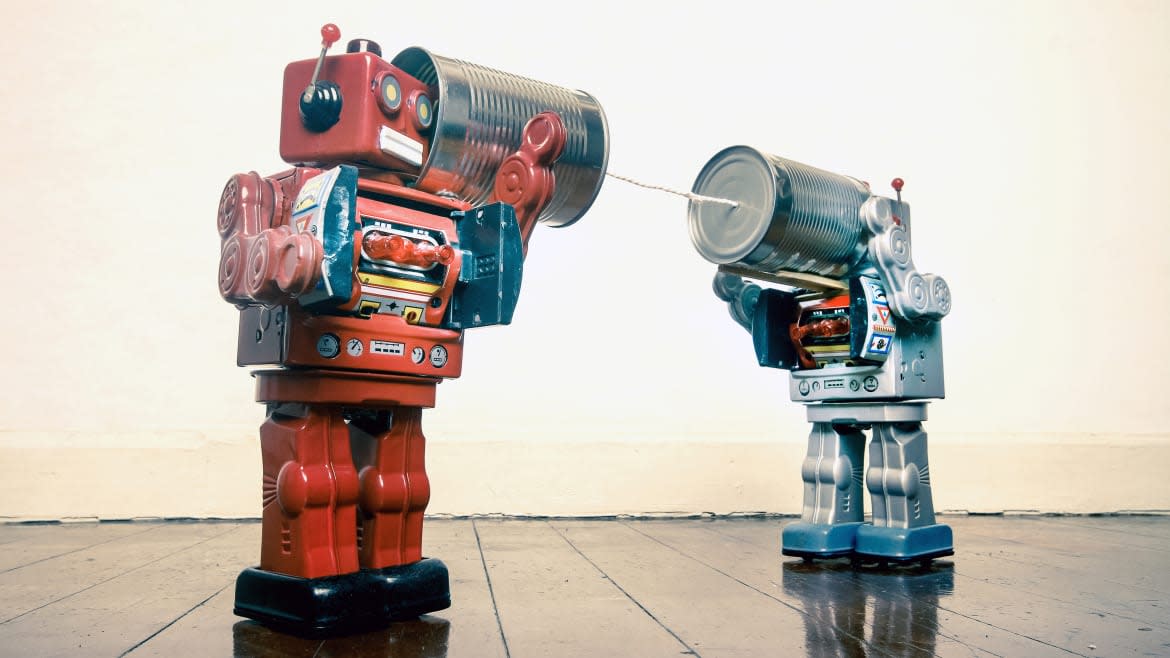This Bot Detects Parkinson’s by Listening to You Breathe

Parkinson’s is one of the most common—and destructive—neurodegenerative diseases in the world. In the U.S., more than a million people will be diagnosed with the disorder each year, resulting in the loss of motor functions, cognition, and memory.
Part of the reason it’s so destructive is that common symptoms like body tremors often don’t appear until years into the disease’s progression. By then, “the brain has already been very damaged,” MIT computer scientist Dina Katabi told The Daily Beast. However, she said that there is one way to potentially catch it early—and that’s by observing a patient's breathing. This can help doctors treat the disease before the more harmful symptoms crop up—and give you a better chance at fighting it.
That’s why, in a study published Monday in the paper Nature Medicine, Katabi and her fellow researchers at MIT trained an AI to observe and analyze a sleeping patient’s breathing patterns to detect neurodegenerative disease. The bot can also detect how severe a person’s Parkinson’s is, allowing doctors to tailor treatments to a person’s needs. The findings could help detect the disease earlier in patients, while also help track its progress over time.
This May Be the Key to Diagnosing Early-Stage Parkinson’s
While it might be surprising to some, we’ve known that the disease can impact the respiratory system for a while now. In fact, James Parkinson, a 19th century English surgeon and namesake of the disease, first identified a relationship between breathing and the disease in his research in 1817, according to Katabi.
“We typically think of Parkinson’s as having just motor symptoms but there are many others like breathing,” Katabi said. “But there are studies that show that Parkinson’s affects breathing even before it affects motor symptoms.”
The way a person’s breathing changes, though, is often so subtle that it’s hard to detect and define without the help of sophisticated instruments. Since a person’s respiratory system can be one of the first areas impacted by the disease, it’s important to be able to pick up on these changes quickly.
A Big New Parkinson’s Drug Just Passed a Crucial Safety Trial
That’s why the team decided to turn to AI. Katabi and her fellow authors trained a neural network using “thousands and thousands” of examples of breathing patterns from patients with Parkinson’s as well as healthy people. “The beauty of these machine learning systems is that they can detect very complex structures in breathing signals that we as humans might find hard to detect. It’s not a defined breathing pattern,” Katabi explained.
One of the benefits of employing the bot is that it’s completely non-invasive. The only thing a patient needs to do is set up a machine that’s roughly the size of a Wi-Fi router in their bedroom while they sleep. The device then shoots radio signals throughout the room that reflect the environment much like a bat does with their sonar. This allows it to detect the person’s breathing patterns as they snooze.
The data is then processed via the AI and sent to a doctor or caregiver to look over and evaluate. This gives it the added benefit of being able to provide accurate diagnostic information remotely—allowing doctors to provide patient care and assessment from virtually anywhere. Katabi adds that this approach allows doctors to give Parkinson’s assessments to patients in underserved communities like those with disabilities or patients who live in rural regions.
However, she’s quick to add that the AI is still in its early stages. More research is needed in order to see this deployed more widely. However, it is a great way to spot it early and in a fairly easy way. The device could also drastically cut down on clinical trial durations and require fewer participants. This could lead to faster developments of treatments—and a quicker end to Parkinson’s for good as a result.
Got a tip? Send it to The Daily Beast here
Get the Daily Beast's biggest scoops and scandals delivered right to your inbox. Sign up now.
Stay informed and gain unlimited access to the Daily Beast's unmatched reporting. Subscribe now.

